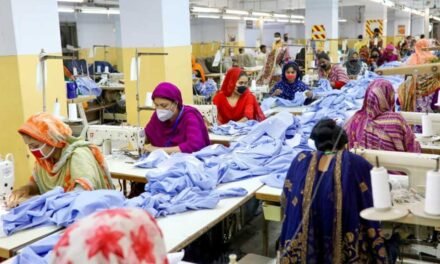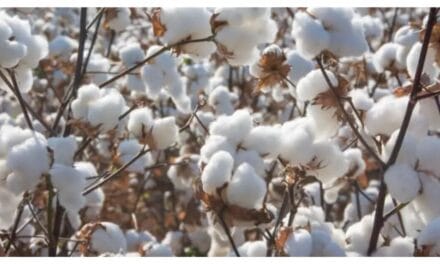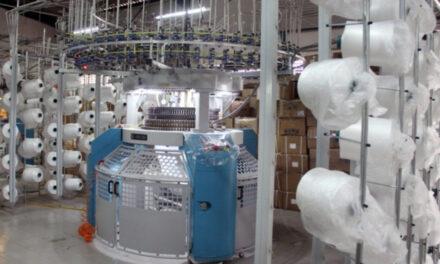 Warp knitting machine builder Karl Mayer has teamed up with Lycra and sporting goods retailer Decathlon to develop a new recyclable swimsuit. The Aqua Vision project was focused on the development of sportswear that can be reused within the clothing sector, i.e. can be kept in circulation, and is also long-lasting.
Warp knitting machine builder Karl Mayer has teamed up with Lycra and sporting goods retailer Decathlon to develop a new recyclable swimsuit. The Aqua Vision project was focused on the development of sportswear that can be reused within the clothing sector, i.e. can be kept in circulation, and is also long-lasting.
“In practice, our goal was to be able to make a swimsuit from a swimsuit again,” explained Nathalie Bourdon, Offer Manager at Decathlon.
The challenge was to do this without using elastane in the production process. The filament with high polyurethane content ensures an excellent fit but causes problems in the recycling process.
The yarn used was Lycra’s T400 EcoMade yarn, a stretch solution that consists of 68% sustainable resources, with 50% of the content coming from recycled plastic and 18% from bio-based resources.
Instead of using elastane, T400, in combination with a smart construction, provided the necessary stretch.
It also consists of two components, each of which shrink differently under heat during finishing. The result of this differential shrinkage is durable elasticity for a long-lasting fit. In addition, the yarn innovation offers another performance feature that is essential for swimwear – it is resistant to chlorine for over 500 hours, making it much more durable than conventional variants.
“At The Lycra Company, sustainable innovation is at the heart of our vision, and we are proud to partner with Decathlon and Karl Mayer to produce a sustainably sourced, chlorine and wear durable swimsuit with no performance compromises which can be practically recycled at end of life,” said Arnaud Ruffin, The Lycra Company’s vice president for brands and retail.
For the fabric manufacture, Karl Mayer used a two-bar warp knitting machine in gauge E32. “We tested whether the sustainable yarn behaves differently during processing than conventional variants. The tests were consistently positive. There were no losses in quality or efficiency,” explained Michael Kieren from the new business development team at the Karl Mayer Group, adding that in textile-to-textile recycling, coloration must be taken into account as early as the design stage. “Light colours are generally easier to recycle. To compensate for colour differences, the fabric becomes darker with each recycling process,” he said.
The resulting swimsuit, which was on show at ITMA, has supple elastic properties which can be recycled back into yarns for new apparel through shredding, melting, pellet production and spinning.





















